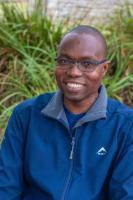Science ES

The three year-long courses of the Science Extended Studies Programme (SESP) are outlined below.
- Mathematics Foundation (MAT 1F)
This year-long course is worth a total of 15 credits and is taught by lecturers from the Mathematics Department. The aim of this course is to help students develop appropriate mathematical tools necessary to represent and interpret information quantitatively at a university level. It also aims to develop certain skills and meaningful ways of thinking, reasoning and arguing with quantitative ideas to solve problems in any given context. Lectures, focusing on mathematical theory, are highly interactive and students are expected to participate actively in class. The weekly tutorials afford students an opportunity to develop problem-solving skills.
- Computer Skills for Science (CSC 1S)
This year-long course is worth a total of 15 credits and is taught by a lecturer in the SESP. The course covers basic computer concepts, the Internet, Microsoft Office, Web designing, developing the fundamentals of programming and understanding basic information systems theory. The course, which has six contact periods per week, is taught solely in the computer laboratories in an interactive, hands-on manner. Four of the weekly contact periods are used for teaching new material, and two are practical periods used to consolidate course content.
- Introduction to Science Concepts and Methods (ISCM 1F)
This year-long course is worth a total of 30 credits. It is an integrated and multidisciplinary course that is taught around several themes. These themes are used as a basis to develop students’ understanding of scientific concepts and to introduce them to methods and skills needed to construct knowledge in the sciences. Academic staff from disciplines such as Physics, Chemistry, Botany, Geology, Environmental Science, Geography and Human Kinetics and Ergonomics, contribute to the course, in the form of theme-based lectures and practicals over a five-week period. Two SESP lecturers (a science lecturer and an academic literacy lecturer) ensure continuity within and between themes throughout the year. This is done through tutorial and enrichment sessions which augment the content provided by the mainstream discipline lecturers and integrate scientific and academic literacy into the offerings of each theme.
These three compulsory courses which comprise the first year of study establish a broad platform to enable students in their second year to choose any courses in the Science Faculty. It should be noted, however, that some mainstream courses have a restricted intake and entry is contingent on the attainment of high marks in BSc-F first year.

Below are the Science Extended Studies Programme lecturers for the three main courses. If you have any queries about the programme structure or entrance requirements please direct them to the coordinator, Rebecca Powell (r.powell@ru.ac.za).
SESP Programme Coordinator:

Rebecca Powell: 老虎机游戏_pt老虎机-平台*官网, Extended Studies Unit, Room 36A, New Arts Building, Level 1. r.powell@ru.ac.za
MAT 1F Lecturers:

Kate Koch (also course coordinator): Department of Mathematics, Room 5, Maths Building. k.koch@ru.ac.za

Catherine McLean: Department of Mathematics, Room 14, Maths Building. c.mclean@ru.ac.za
CSC 1S Lecturer:

Amon Magadza: 老虎机游戏_pt老虎机-平台*官网, Extended Studies Unit, Room 38, New Arts Building, Level 1. a.magadza@ru.ac.za
ISCM Lecturers:

Aviwe Matiwane: 老虎机游戏_pt老虎机-平台*官网, Extended Studies Unit, Room 33, New Arts Building, Level 1. a.matiwane@ru.ac.za

Rebecca Powell: 老虎机游戏_pt老虎机-平台*官网, Extended Studies Unit, Room 36A, New Arts Building, Level 1. r.powell@ru.ac.za
Last Modified: Wed, 28 May 2025 12:30:24 SAST
